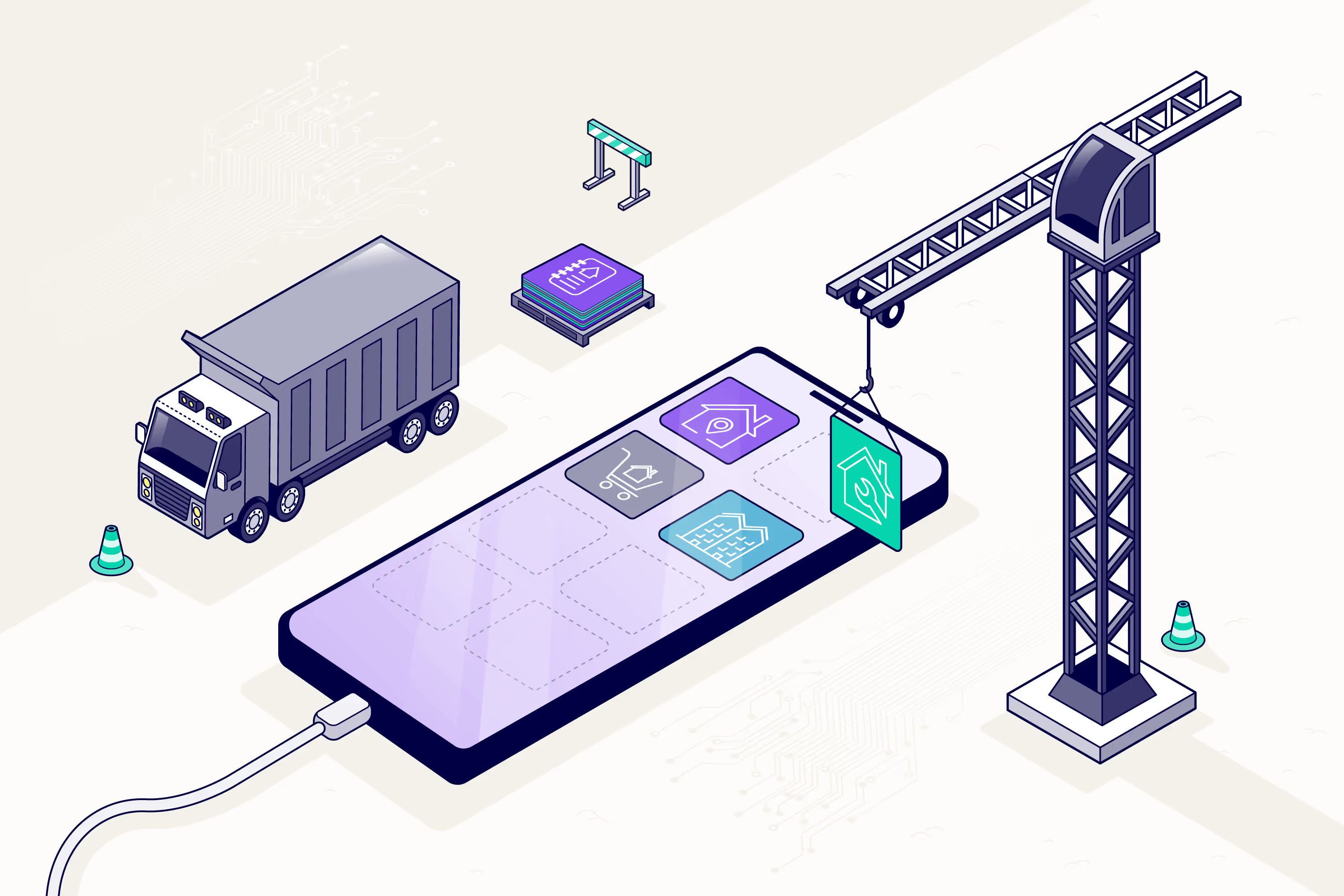
Articles
Guide: Building a seamless tech suite to support your real estate operations
June 22, 2022

Like any industry, real estate is about people. And if you’re good with people, you’ve already won half the business battle. The problem is the other half of that battle, which involves far-less-fun stuff like keeping track of listings, scheduling showings, and making sure all your agents get paid.
The good news is, you live in the 21st century, which means technology can help manage the logistics and details for you. From lead follow-ups to payroll and even virtual tours, dozens of platforms exist that make the business side of the business easier. Here are some of the best to help you develop a well-rounded real estate technology suite.
Customer Relation Management platforms
Keeping track of dozens, and sometimes hundreds, of people can be tough, but Customer Relationship Management platforms, or CRMs, do most of the heavy lifting for you. These are the best ones to help you track each client, listing, and lead without having to dig too deep.
Moxiworks
For the goal-oriented agent, Moxiworks offers the most user-friendly way to track those goals. Its easy-to-read dashboard shows you sales, revenues, and other measurable objectives so you can easily see how far you, and your team, have to go.
It also offers useful automated features, like syncing contacts in Google and Microsoft, then flagging the ones most likely to become clients. It also updates property information in real time, so you can assess the value of a listing with current data on surrounding homes. Additionally, Moxi includes presentation software for pitching and open houses, and offers recruiting options so you can scope out the closest talent.
Brivity
For to-do list addicts, Brivity is ideal. The inbox-style listing index makes pulling up info on leads and listings incredibly simple. “It’s a great option, because in addition to the typical CRM functions, it allows you to automate your task lists for listing and transaction management,” says Dr. Laura Sims, lead systems consultant with Kathleen Metcalf, a coaching firm that works with real estate agents and administrative professionals.
It also helps you distribute leads among your team, to ensure potential sales are going to the right people. Brivity even assists in marketing efforts by auto-generating listing content on every major sales platform.
Listing and transaction management
While managing your customer relationships and personnel is important, technology can also guide you through the nitty gritty of getting homes sold. These platforms simplify workflow, leaving you more time to focus on your clients.
Google Workspace
Though the Google suite of products isn’t anything novel, there’s a reason it’s so popular. “This is a great place for teams to build out their workflow,” says Sims. “(It breaks down) what needs to be done, when, and by whom for each phase of the business.”
Practically, it’s a project management tool, where you or your team leader can assign specific tasks and their deadlines. Then, Google sends alerts when work needs to be completed and lets you know when it’s done. Think of it as a Gantt chart for the 21st century.
Trello
This task management platform is used in lots of other industries because its functionality and efficiency is well-suited for anyone managing multiple tasks across large numbers of people.
“It offers transparency, so an agent can see at a glance what’s been completed by their operations team for each transaction,” says Sims. “It also helps teams manage projects outside listings, like brand marketing, operations, etc.”
So whether you’re trying to check if a listing has been promoted on sales platforms, or if an agent has followed up with a batch of leads, both of these programs make it easy. They also include invoicing and payment features if you work with independent contractors.
Showings
The pavement-pounding work of getting out and showing houses can also be easier with the right technology. Whether you’re simplifying property access or finding virtual tours, technology can save you both time and miles on your car.

Supra
Supra has been in the lock box game longer than Tom Brady’s been playing football, and much like TB12 it’s adapted without missing a beat. Supra’s app organizes all your showings by listing and buyer. And also offers smartphone-accessible electronic lock boxes, so you can grant access to contractors and potential buyers remotely.
Supra also tracks who’s been to which properties and when, and allows you to access properties outside your immediate MLS network. Virtual tours let buyers know what they’re walking into before they arrive, and makes it easy to send offer documents if tours go exceptionally well.
Open Home
Tired of struggling to read illegible sign-in sheet handwriting when doing your post-open-house follow ups? Open Home eliminates that particular chore, as well as the follow-up process. This handy app puts sign-in sheets straight on a tablet, then automatically follows up with visitors after their walk-through.
But don’t think Open Home is just a glorified “thank you” note writer. Open Home also alerts you to potential leads who don’t have an agent, and helps you promote your listings on social media with one-click posting and emails.
YUPIX
Sometimes you need to show a home to someone who is too far away to see it in person. Or sometimes, as in the case of PMG’s E11even Residences Beyond in Miami, the property you’re trying to sell hasn’t been built yet. For those occasions, virtual reality tours are invaluable, and YUPIX is a good place to start if you’re looking for VR assistance.
While you may or may not need all the bells and whistles YUPIX offers – like picking out furniture and countertops in a virtual environment –immersive VR also saves time, as you can take clients on 360-degree visits to multiple properties without leaving your office.
Business tracking
Finally, you’ll need ways of seeing if any of this helps your bottom line. For that, a business tracking app is the move, so you’ll know where you’re killing it, and which spots need help.

Sisu
Sisu is effectively a one-stop shop for all your back-of-the-house details, where you can not only track which agents are selling the most, but also help coach those who are lagging. Sisu’s dashboard analyzes data on lead conversions, and breaks down your ROI from different marketing initiatives.
But Sisu doesn’t stop at simple number crunching. It also offers features for paying commissions and office staff, and helps with recruiting new talent. The logical last step is getting that new talent set up in your payment and performance tracking systems, which Sisu does too.
Trainual
And hey, *looks directly into the camera*, Trainual can make your business run easier, too. By conveniently creating a home for all your training processes, company policies, and standard operating procedures, it saves countless time for you and your administrative staff. So rather than spending hours onboarding new agents and showing them the ropes, Trainual can do it all for you.
So no matter the size of your business, you can find tech platforms to make the details of real estate easier. The people part is still up to you, but when the rest of your business is streamlined, you can focus on making people happy, while making yourself some money in the process.
Similar Blog Posts










